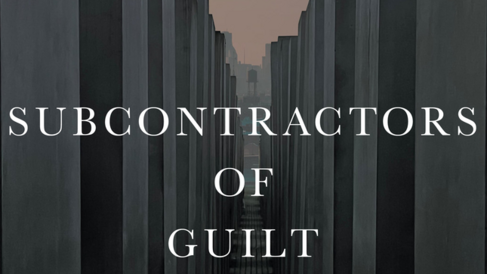
“Sie haben mehr als zehn Jahre untersucht, wie deutsche Muslime in den Fokus der Holocaust-Aufarbeitung gerückt sind. Warum gerade in Deutschland?”
“You’ve spent more than a decade investigating how Germany Muslims became the focus in coming-to-terms-with the Holocaust. Why Germany?”
So begins an extended interview between Zeit Online and Professor Esra Özyürek.
Handling history
The answer—for those unable to access the German-language interview—is that Germany seemed more ready to reckon with its difficult past, especially when compared with Britain (where colonialism is celebrated in citizenship tests) or the USA (where some hold influenza responsible for the mass deaths of America’s indigenous populations).
In the past two decades, however, a sense of pride in having found the right way to deal with history, inadvertently combined with flag-burning (at the time of the second intifada)—and the white majority society discovered a new task: fighting others’ antisemitism.
The interview works through key observations from Özyürek’s study, Subcontractors of Guilt (April 2023, Stanford University Press).
Current affairs and the unspeakable
As the interview continues, Özyürek is also called upon to reflect on current events:
A Federal agency cancelled upcoming academic discussion of Holocaust memory at an event entitled “We still need to talk—Hin zu einer relationalen Erinnerung (towards a relational memory)”. The Frankfurt Book Fair organisers had already postponed an event with award-winning Palestinian author Adania Shibli. This shift is problematic.
“Nothing justifies Antisemitic slogans or violence. I'm concerned with the legitimate positions that are being pushed out of public discourse…”. Özyürek emphasises. “So should more Antisemitism be permitted, so that we can start talking about it?”, the interviewer queried. The answer is an absolute not:
“Nein, Antisemitismus sollte auch als Antisemitismus bezeichnet und geächtet werden.
(“No, Antisemitism should be called out and outlawed.”)
Yet, the appropriate response to current events does not end there—to translate what follows:
“...the images from Gaza are heartbreaking, just as it is heartbreaking to see, the images in Israel after the Hamas attack were just as shocking. Talking about it is not Antisemitic. Just as it is not Antisemitic to ask what will happen to the two-state solution or whether Palestinians will ever have their own country in which they can be free and equal citizens. This is what I mean by grey area. Palestinians and their supporters are currently experiencing that everything related to Palestine has become unspeakable.”
The mistake, Özyürek argues, is in thinking we can fight any form of racism individually. People need to work together against Antisemitism, as with all forms of discrimination.
For subscribers to Zeit Online, the full interview is available to read in German:
Esra Özyürek über Deutschland: “So verfestigt sich der Hass” (www.zeit.de)
